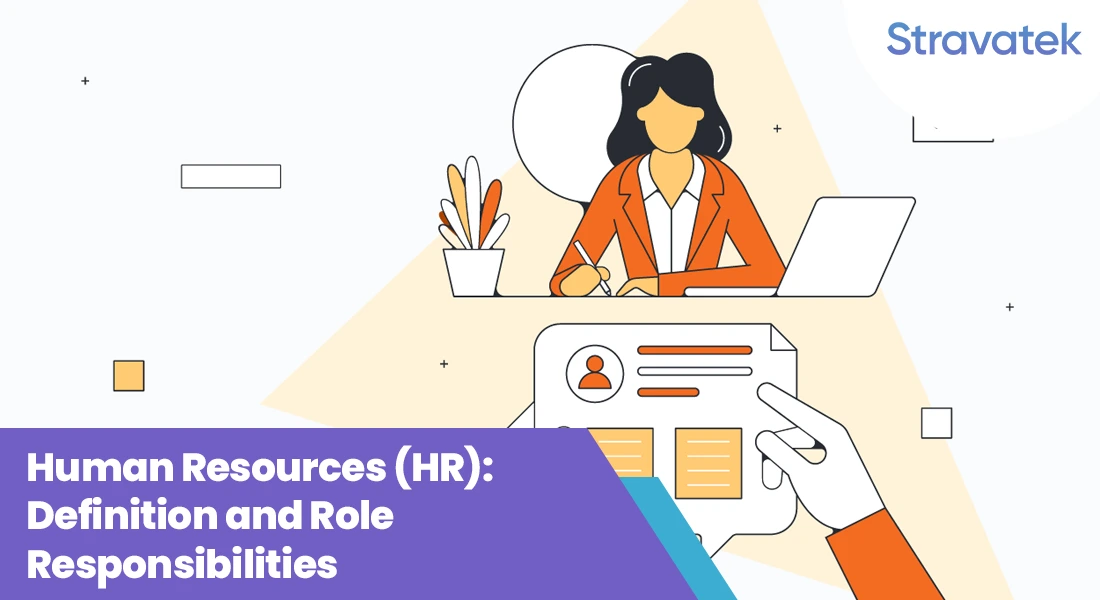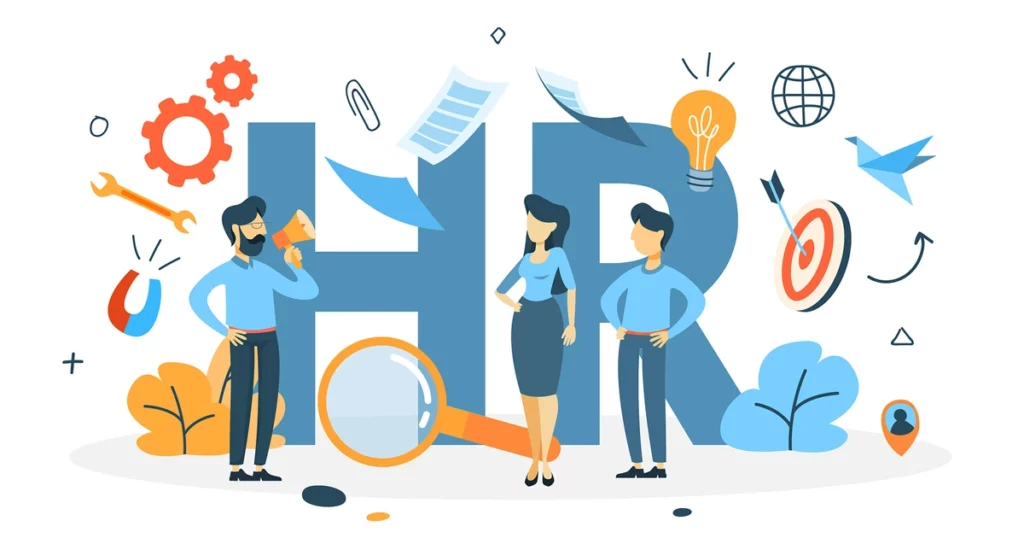Human Resources (HR): Definition and Role Responsibilities

Human Resources (HR) is a term that encapsulates the management and development of a company’s workforce. It’s a multifaceted department responsible for a range of activities, including recruitment, training, employee relations, and compliance with employment laws. Essentially, HR is the backbone of organizational management, ensuring that the workforce is productive, satisfied, and well-managed. It plays a strategic role in aligning the workforce with the company’s goals and values, fostering a positive work culture, and driving business growth through effective people management. Visit: HR Solutions.
What are the 7 pillars of HR management?
The foundation of effective HR management rests on seven key pillars: strategic management, workforce planning and employment, human resource development, compensation and benefits, employee and labor relations, risk management, and HR information systems. Each of these pillars represents a critical aspect of HR management. Strategic management involves aligning HR strategies with business objectives, while workforce planning focuses on recruitment and talent acquisition. Human resource development is about employee training and career development, and compensation and benefits deal with rewarding the workforce. Employee and labor relations encompass managing interactions with staff and unions, and risk management involves ensuring compliance with laws and regulations. Lastly, HR information systems provide the technological backbone for managing all HR-related activities.
What are Human Resources roles and responsibilities?
The roles and responsibilities within a Human Resources department are diverse and multifaceted. HR professionals are tasked with recruiting talented individuals, onboarding new employees, and providing training and development opportunities. They also manage payroll, benefits, and leave, and ensure compliance with employment laws and regulations. Furthermore, HR plays a vital role in maintaining employee relations and resolving workplace conflicts. In larger organizations, these responsibilities might be divided among specialized HR roles, such as recruitment officers, training and development managers, or employee relations specialists.
What are the 4 functions of HR department?
The four core functions of an HR department are talent management, training and development, employee relations, and HR compliance. Talent management involves the entire process of hiring and retaining employees, from recruitment to succession planning. The organization focuses on training and development to equip employees with the necessary skills and knowledge for effective job performance and professional growth. Employee relations entail managing the relationship between the employer and the employees, including handling grievances and fostering a positive work environment. Lastly, HR compliance ensures that the organization adheres to all relevant labor laws and regulations, thus protecting the company from legal risks.
Strategic Role of Human Resource Department in Organizational Success
The strategic role of Human Resources in an organization extends far beyond administrative duties. HR professionals are now considered key players in shaping organizational strategies and contributing to business growth. This strategic dimension involves analyzing workforce trends, forecasting future talent needs, and developing policies that align with the company’s long-term objectives. HR’s role in strategic planning also includes identifying and nurturing leadership potential, fostering a culture of continuous learning and innovation, and ensuring that the workforce is adaptable to changing business landscapes. In essence, HR has evolved from a support function to a strategic partner that is integral to an organization’s success.
Integrating Employee Well-being into HR Responsibilities
In recent years, the scope of Human Resources has broadened to include a stronger focus on employee well-being. This modern perspective recognizes that the health and happiness of employees are crucial to productivity and overall company performance. Therefore, HR departments are increasingly involved in developing comprehensive wellness programs that address physical, mental, and emotional health. This includes initiatives like flexible working arrangements, mental health support, wellness workshops, and fitness programs. By prioritizing employee well-being, HR contributes to a more engaged, motivated, and productive workforce, which is vital for the long-term sustainability of any organization.
The Evolution of Human Resource Management

The evolution of Human Resource Management has been significant, particularly in adapting to contemporary workforce needs. Today’s HR must navigate a diverse array of challenges, including managing a multigenerational workforce, integrating advanced technologies, and fostering an inclusive workplace. The rise of remote work and the gig economy has also prompted HR to develop new strategies for engagement, communication, and performance management. Modern HR practices, now emphasize flexibility, digitalization, and employee-centric policies. Demonstrating HR’s adaptability and its commitment to meeting the evolving needs of both the workforce and the organization.
Stravatek: Pioneering HR Outsourcing for the Modern Workforce
Stravatek stands at the forefront of Human Resources outsourcing, offering tailored solutions that resonate with the evolving dynamics of the HR industry. As a company deeply rooted in understanding the strategic role of HR in organizational success, Stravatek goes beyond traditional administrative functions to deliver comprehensive HR strategies that drive business growth and employee satisfaction.
Specializing in aligning HR practices with contemporary workforce needs, Stravatek offers a range of services from developing employee well-being programs to implementing advanced HR technologies. Recognizing the critical impact of employee wellness on productivity, Stravatek has developed innovative programs that integrate seamlessly into clients’ existing HR frameworks, ensuring a holistic approach to employee health and engagement.
Conclusion
Moreover, Stravatek is adept at navigating the latest trends and predictions in HR software, providing clients with cutting-edge solutions that enhance efficiency and strategic decision-making. Whether it’s leveraging AI for talent management or utilizing predictive analytics for workforce planning, Stravatek ensures its clients are equipped with the best tools to meet the challenges of the modern workplace. Visit: HR Expert.
Partnering with Stravatek means embracing a future where HR is not just a support function, but a key driver of organizational success, adapted to meet the demands of the ever-changing business landscape. For more information, visit our website or get in touch with us directly.
© 2021 Stravatek. All rights reserved.


